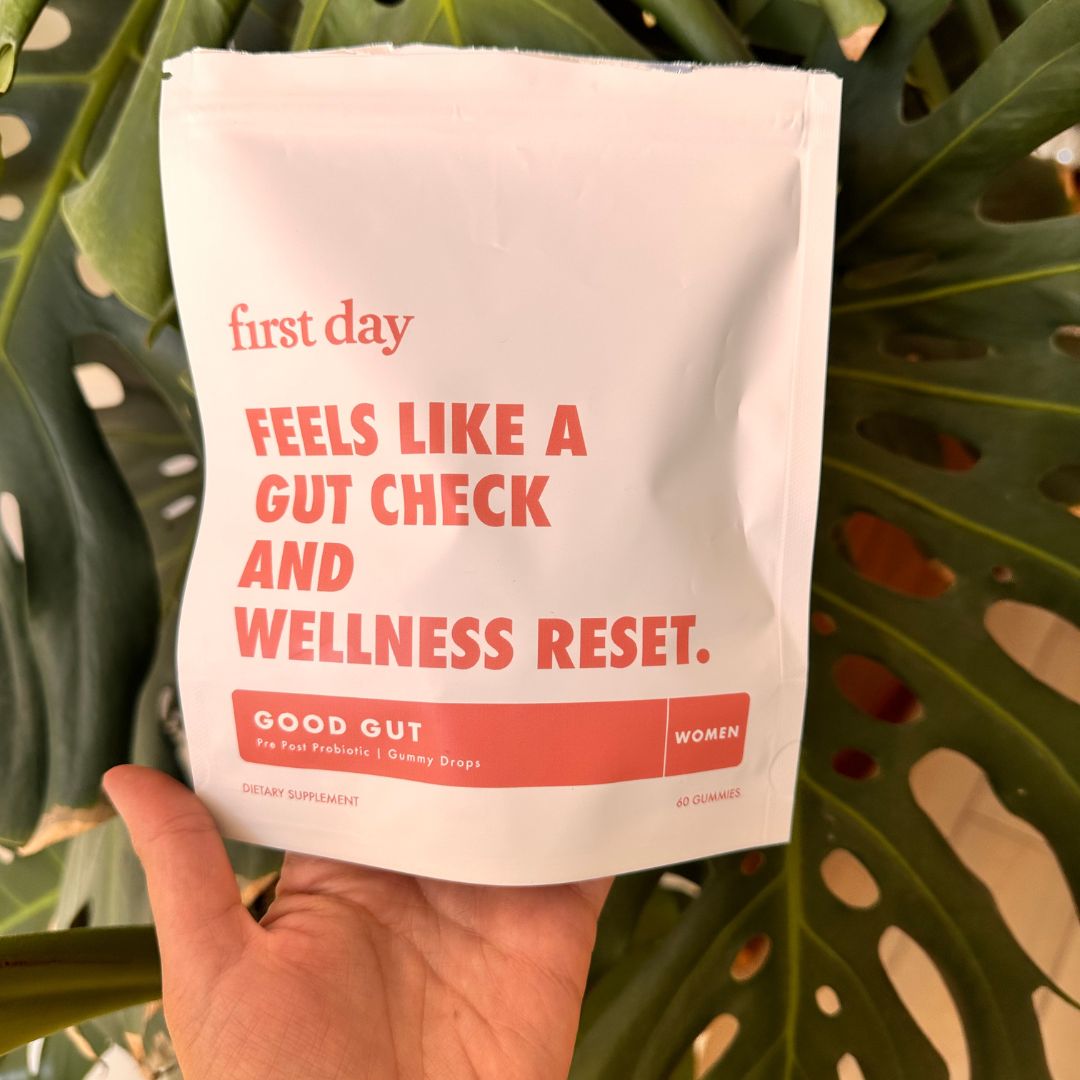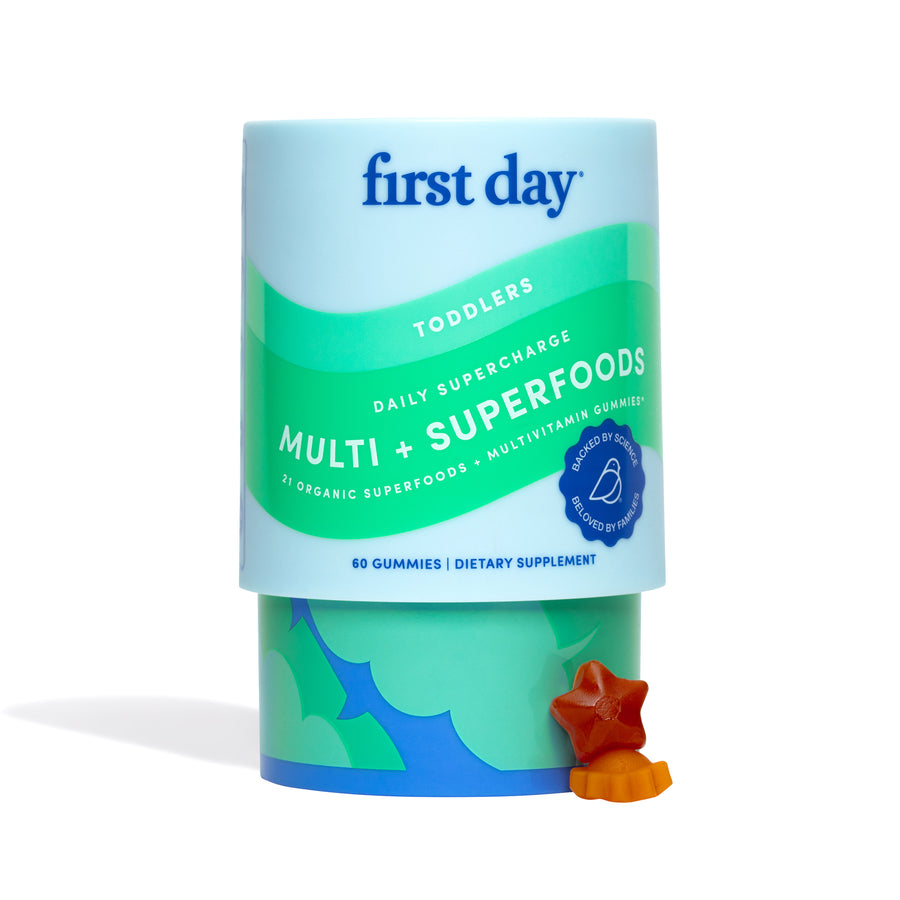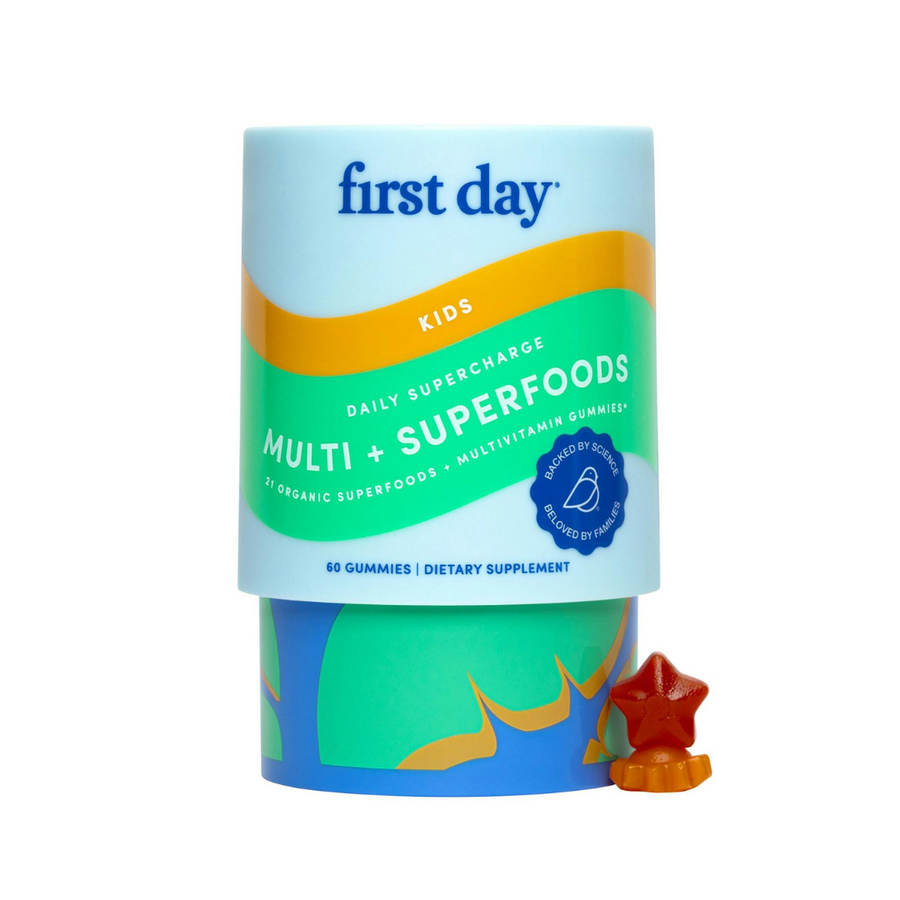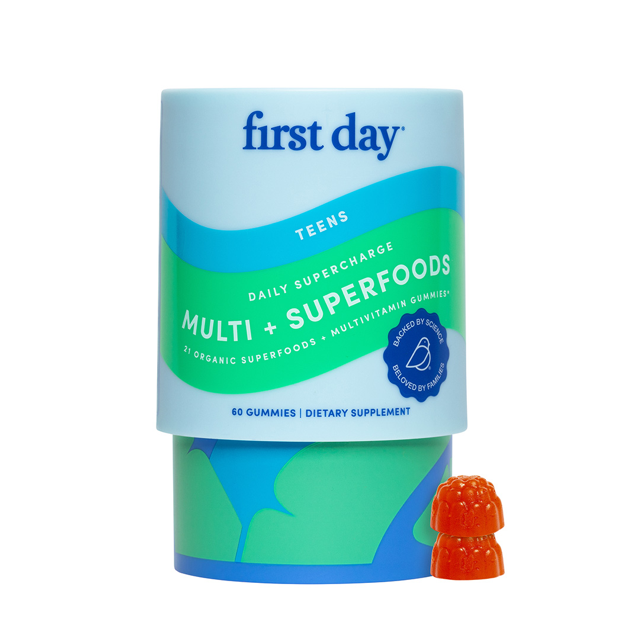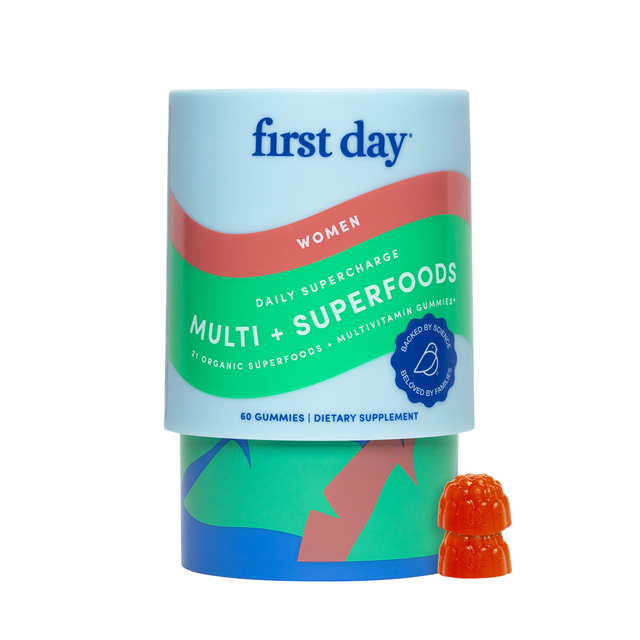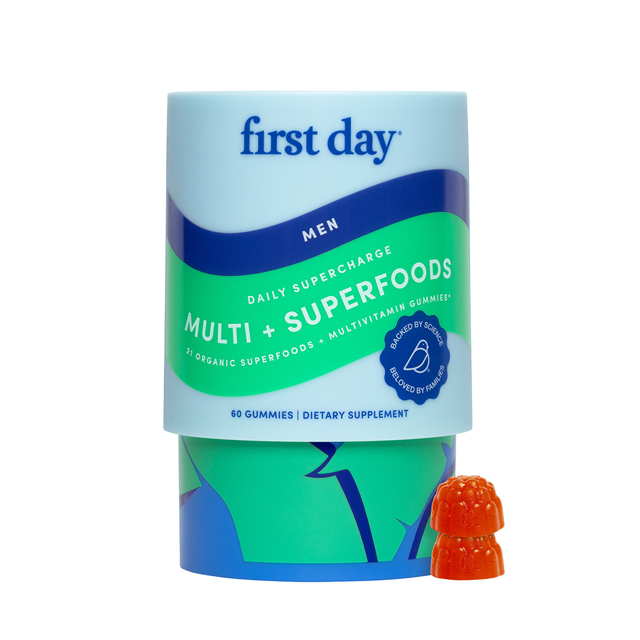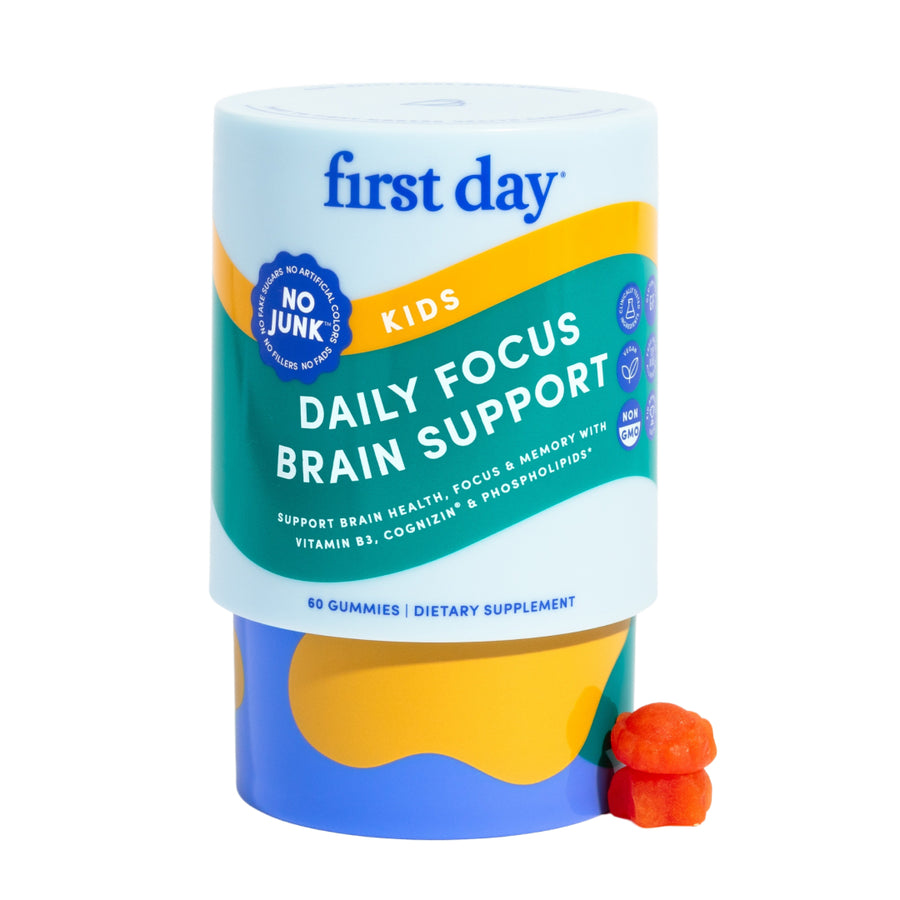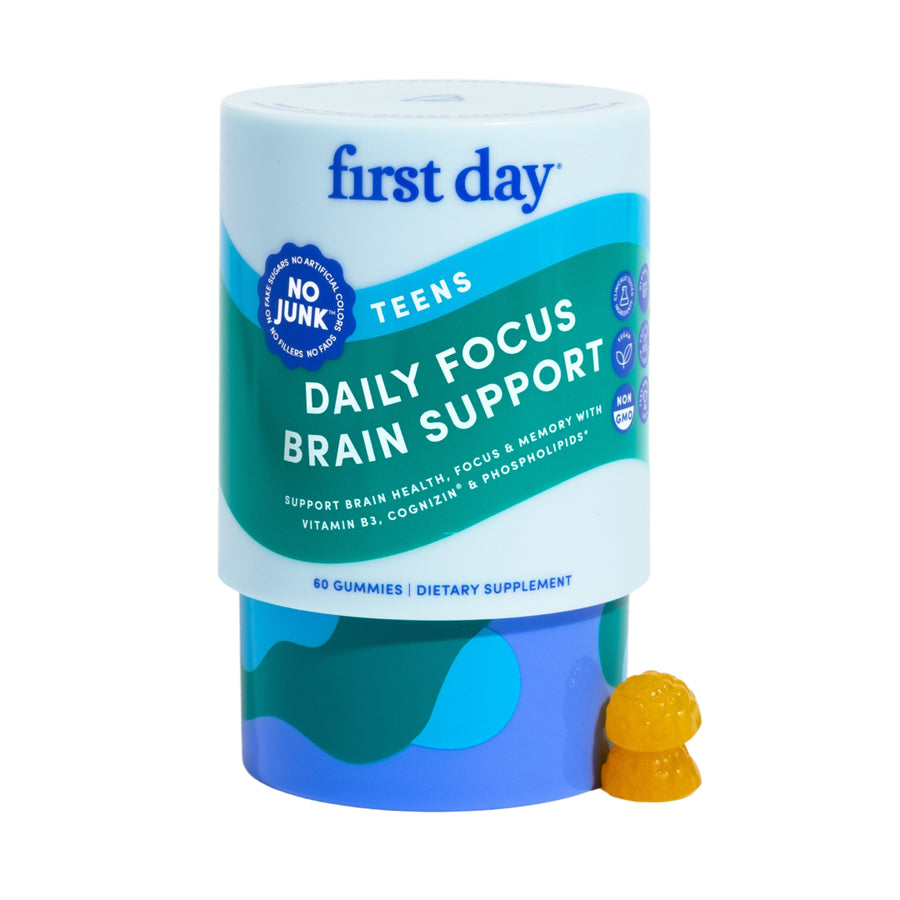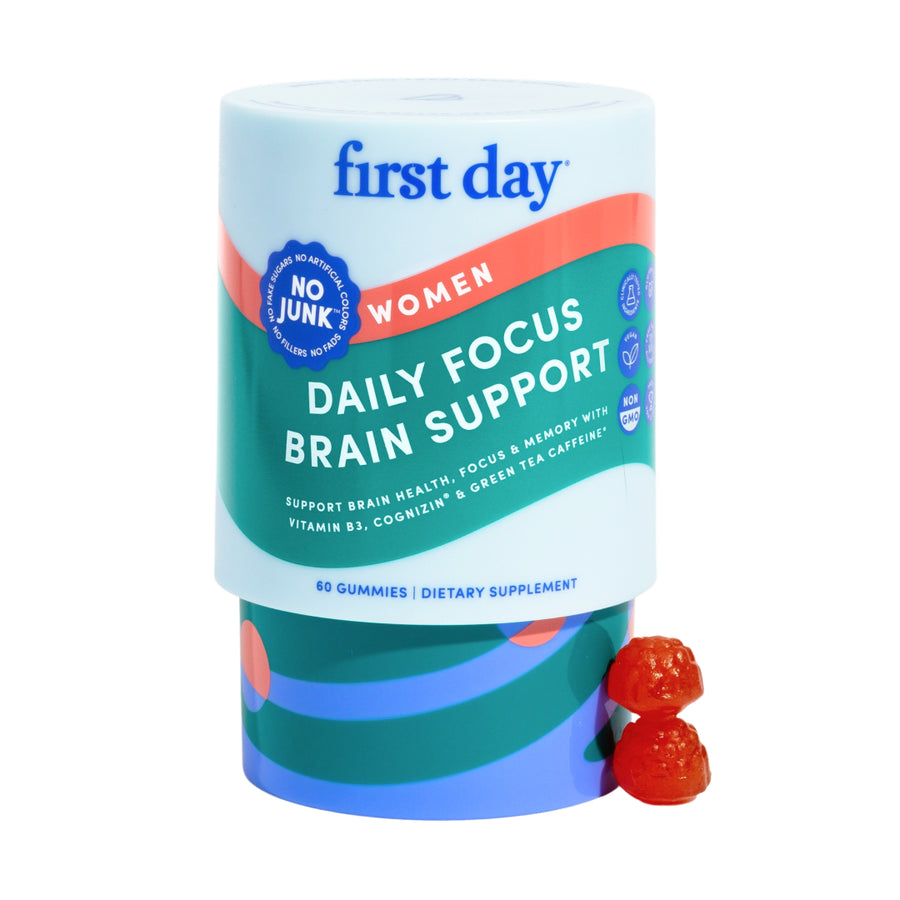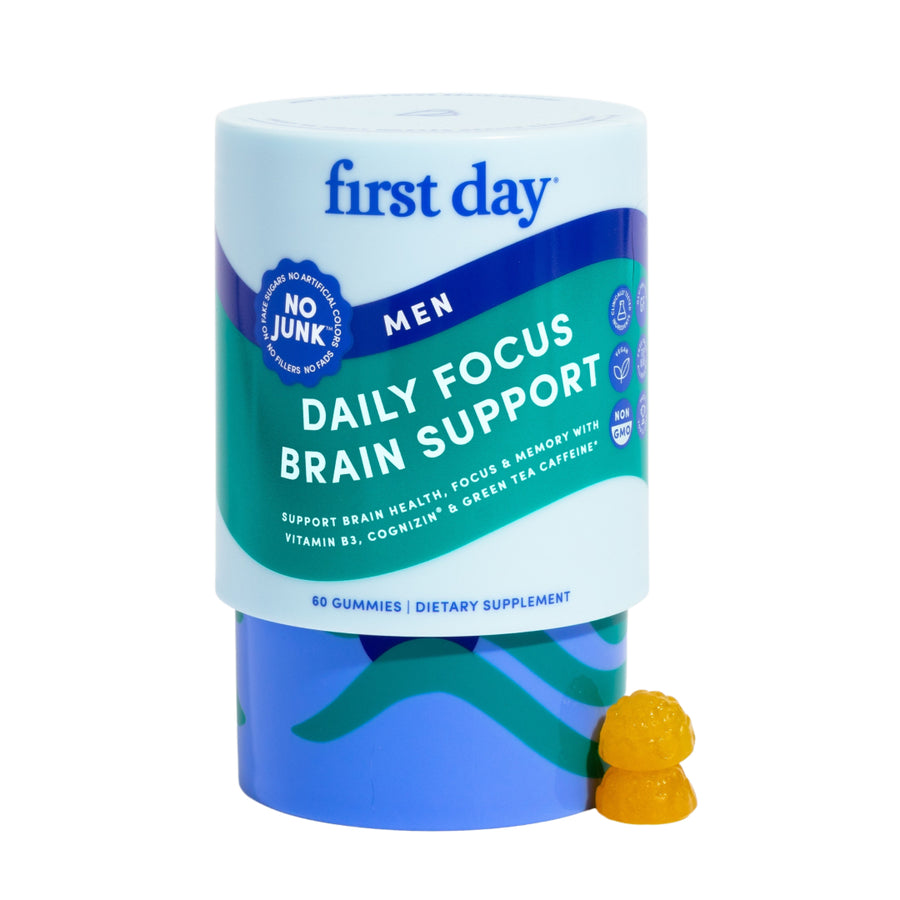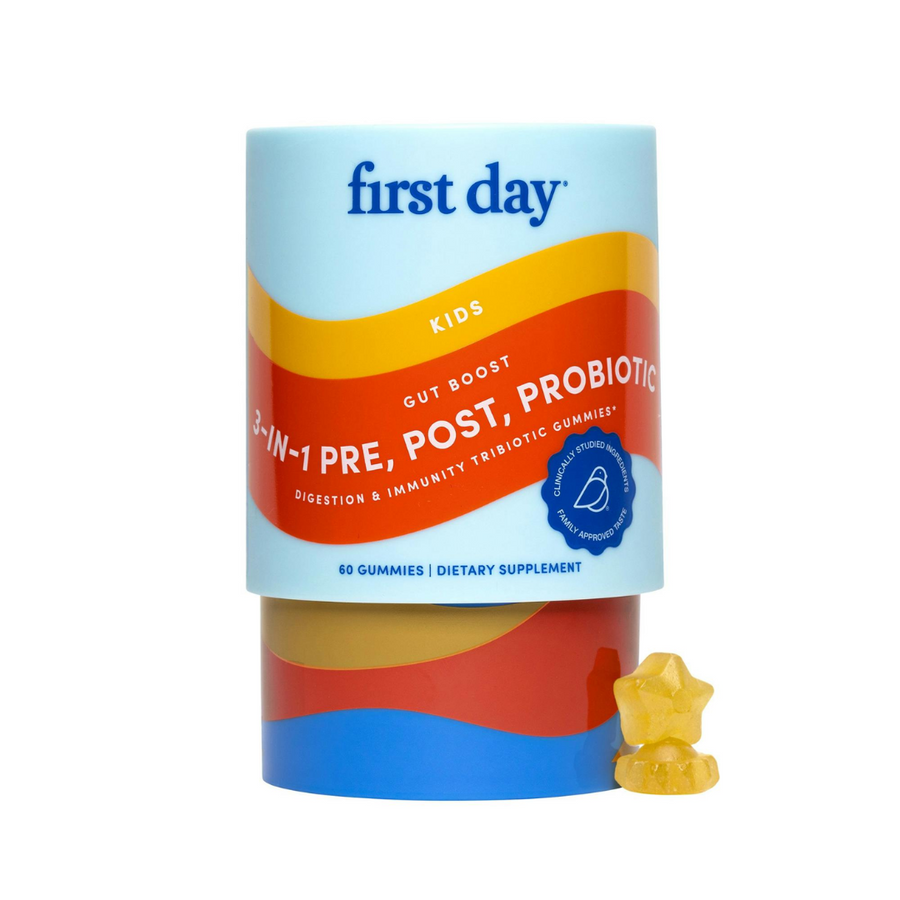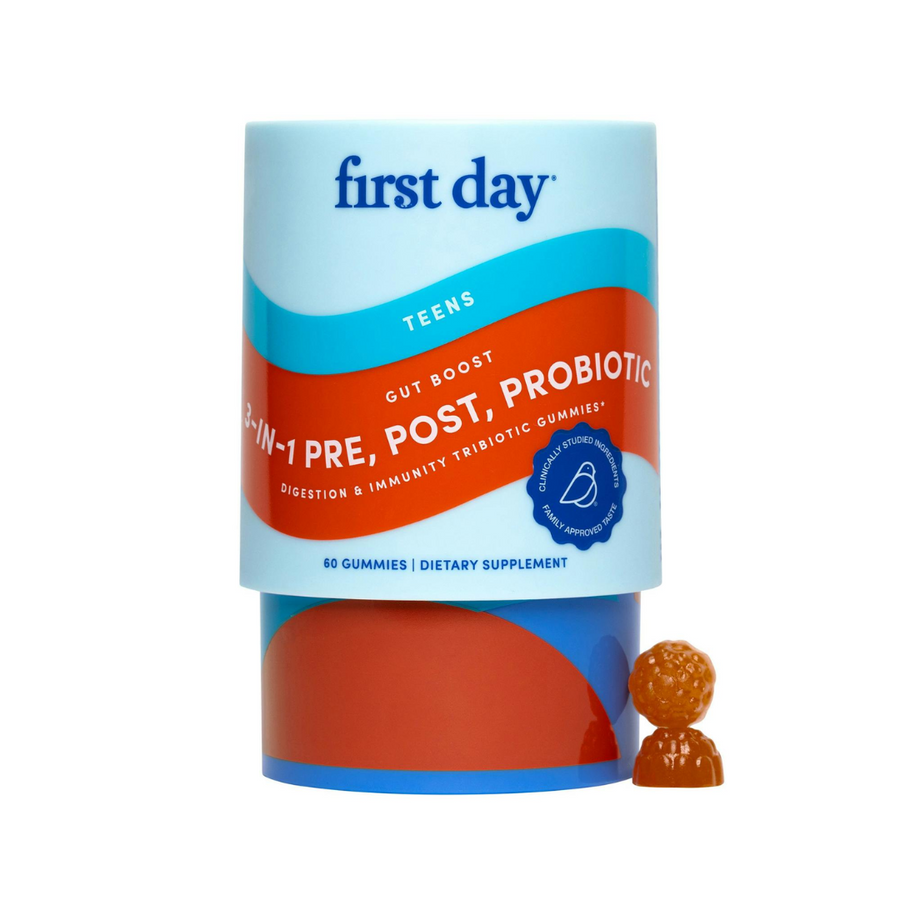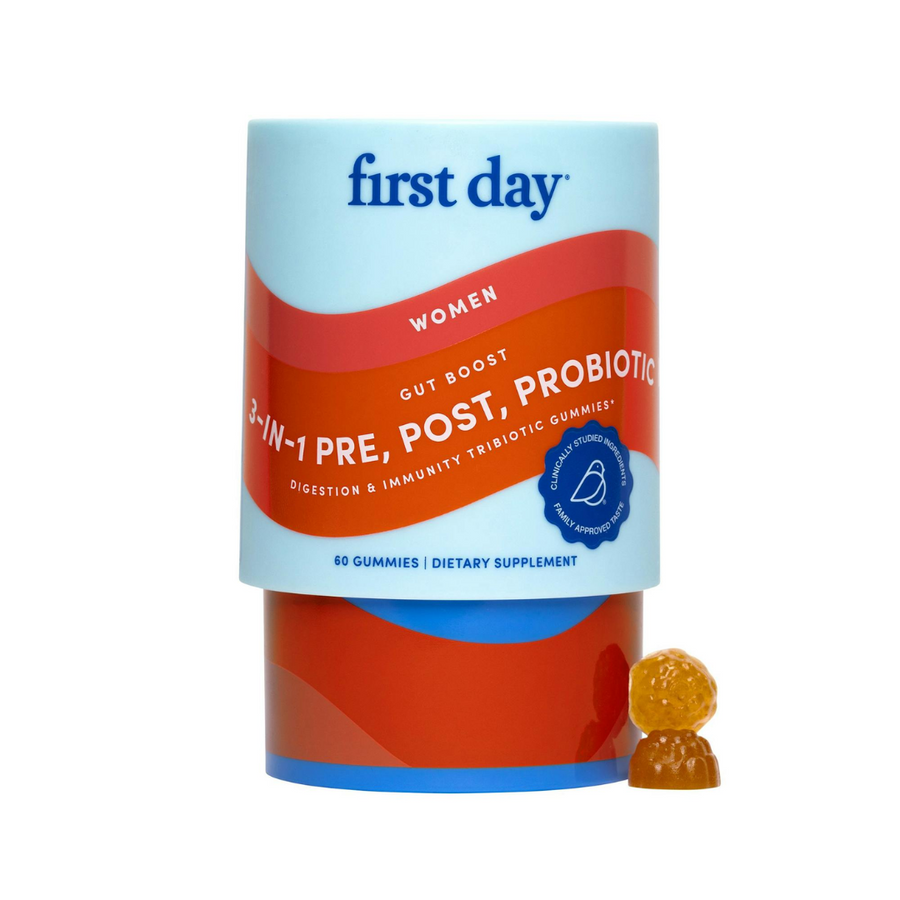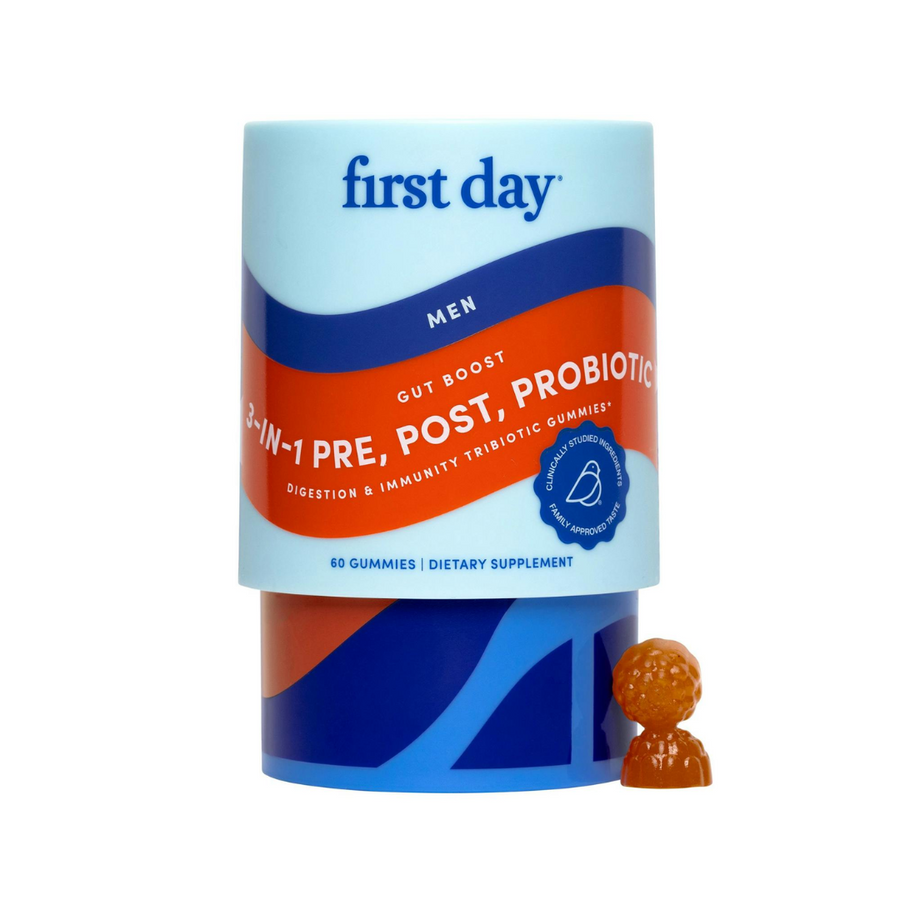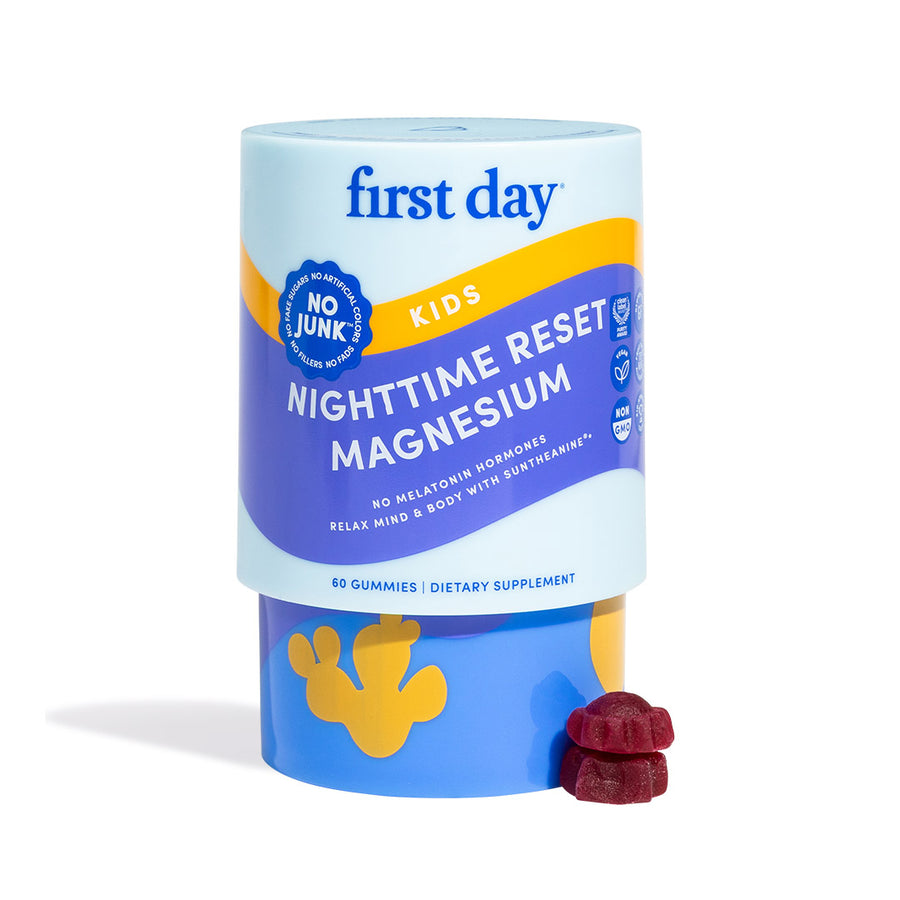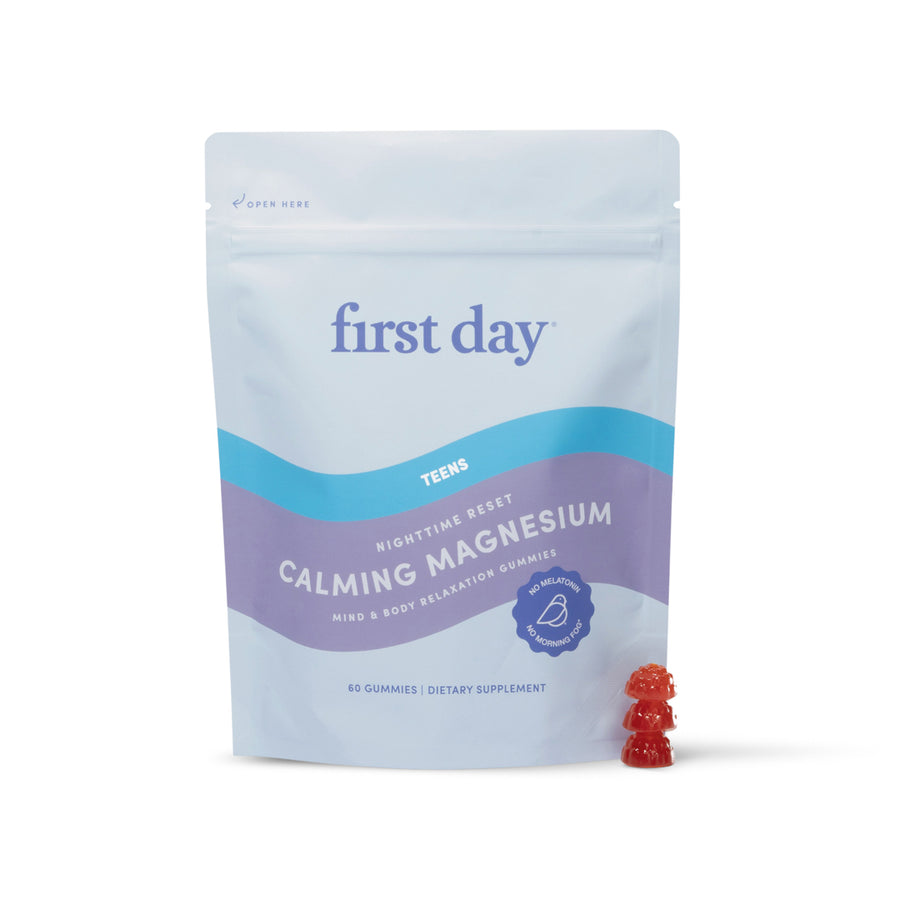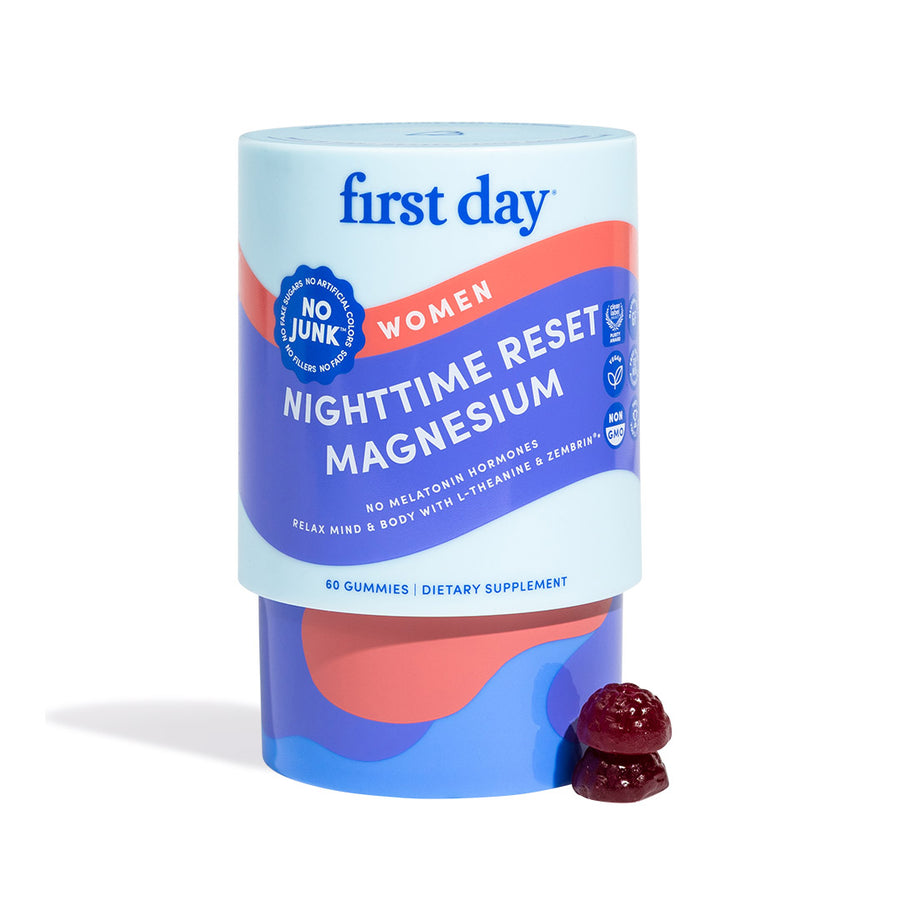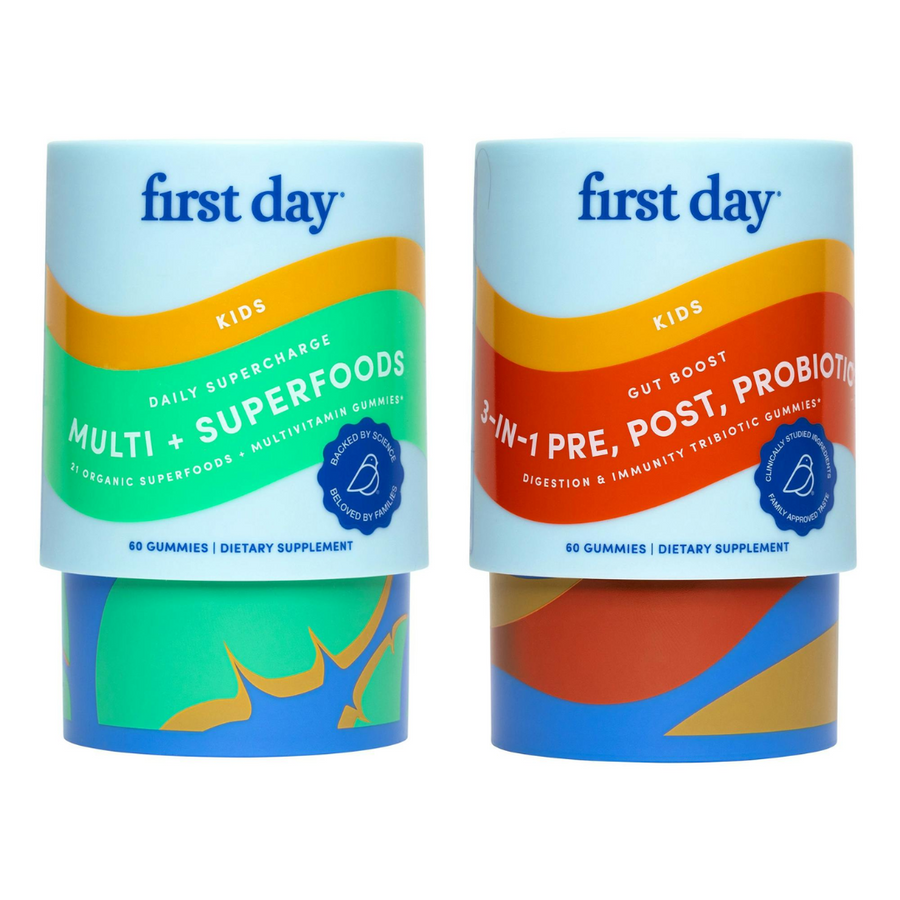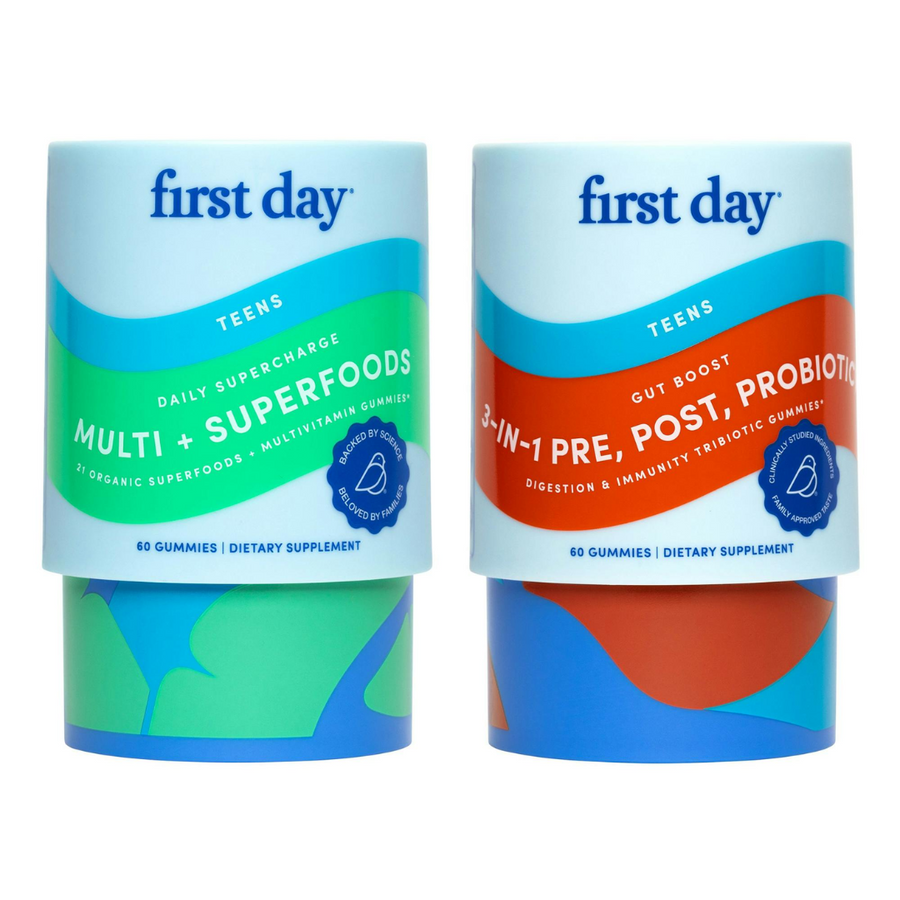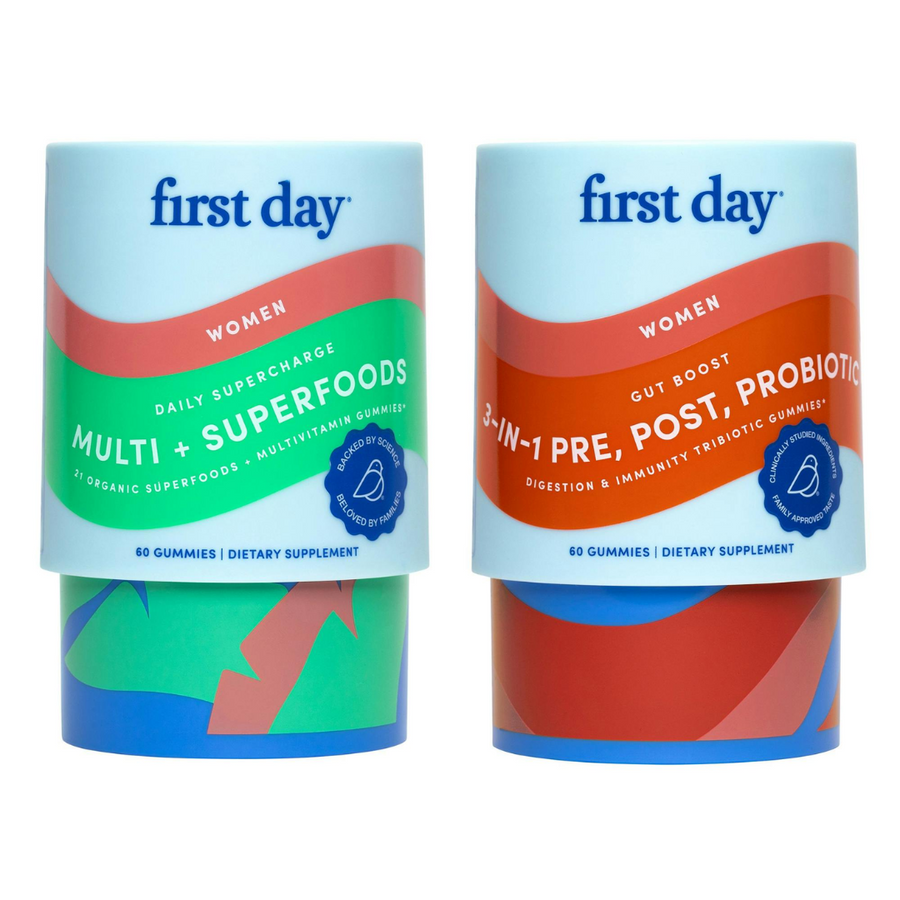We've all heard the buzz around prebiotics and probiotics, swirling through wellness circles and popping up in health-food store aisles. They're almost old news at this point. But just when you thought you had your gut health all figured out, enter a new player: tribiotic. Now, you might be scratching your head, thinking, "Wait, what are tribiotics?" Don't worry, we've got you covered.
In short, what are tribiotics? Well, we are not speaking about the tribiotic ointment known for serious skin injuries such as serious burns and animal bites. Rather think of tribiotics as the next level in gut health. Tribiotic products combine the powers of prebiotics and probiotics with postbiotics, forming a super trio that works synergistically to promote digestive harmony, boost immunity, and elevate overall wellness. This concept isn't exactly brand-new but has evolved significantly in recent years. Its roots can be traced back to traditional practices of combining food and fermentation for health benefits. Still, with the advancement of nutritional science, we now understand the importance of combining all three biotics to support the health and wellness of your entire family.
In this blog post, we'll deep-dive into the nitty-gritty of a tribiotic — from the science behind how they work to everyday benefits like improved digestion and a stronger immune system.
What are Tribiotics: Understanding the Science
Breaking down the science behind the tribiotic is no easy feat, but once you get the hang of it, you'll understand why this trio is so powerful.
Probiotics: The Beneficial Bacteria
Probiotics, often hailed as the "good" bacteria, play a crucial role in maintaining our gut health. These microorganisms contribute to balancing the gut microbiome. What does this mean for you? Basically, a balanced microbiome is key to a healthy digestive system, immunity, and even mental health.
Many studies have consistently demonstrated the benefits of probiotics. For instance, a research paper published in the Antibiotics Journal highlighted that probiotics might significantly reduce the risk of antibiotic-associated diarrhea, a common issue among patients taking antibiotics. They do this by maintaining a healthy balance of gut bacteria and preventing the overgrowth of harmful bacteria.
Another study showed that probiotics could improve the body's immune response, making us better equipped to fight off infections. With the help of probiotics, our bodies can effectively control the immune system and reduce inflammation, leading to better overall health. So, this isn't just about having fewer stomach aches; it's about creating an internal environment where your body can thrive.
Prebiotics: Nourishing the Microbiome
Prebiotics are essentially the food that feeds those beneficial bacteria (probiotics) in your gut. Think of them as the healthy fiber that keeps the residents of your microbiome happy and well-nourished. These fibrous substances can't be digested by the body directly. Instead, they serve as a feast for the good bacteria, promoting their growth and activity. This is crucial because a thriving microbiome helps with everything from digestion to fighting infection.
Research further backs up the importance of prebiotics in our diet. For example, a study published in the Foods journal points out that increasing prebiotic fiber intake can lead to significant improvements in digestive health by increasing beneficial bacteria in the gut. Similarly, another study found that prebiotics might enhance calcium absorption, which is vital for bone health, particularly in teens and women.
Postbiotics: The Metabolic Byproducts
So we’ve talked about probiotics and prebiotics, but what about this mysterious third member of the tribiotics club? Postbiotics sound like something out of a sci-fi movie, but they’re actually just as grounded in science as their pre- and probiotic cousins. In essence, postbiotics are the byproducts produced when probiotics munch on prebiotics. These byproducts, which include short-chain fatty acids like butyrate, acetate, and propionate or heat-treated friendly bacteria, are not just waste; they're powerhouse substances that play critical roles in our health.
They help regulate your immune system, protect the lining of your gut, and even have the potential to reduce inflammation and fight off harmful pathogens. There's growing evidence to suggest they could be a major player in our overall well-being.
Synergistic Mechanisms
The secret sauce to tribiotics' effectiveness lies in how probiotics, prebiotics, and postbiotics interact. Think of it as a straightforward team effort: prebiotics feed probiotics, which then produce postbiotics. This interaction amplifies the benefits of each component, making the gut microbiome a healthier environment overall.
Research backs this up. For instance, a study by Vance et al. showed that combining prebiotics and probiotics can enhance probiotic survival and adherence in the gut, resulting in a more significant positive impact on gut health. This combo not only aids digestion and nutrient absorption but also strengthens the intestinal barrier, which is crucial for preventing pathogens from entering the bloodstream.
For instance, leaky gut syndrome refers to an increased intestinal breach where the gut lining becomes less able to protect the internal environment from harmful substances. This condition can manifest through symptoms such as bloating, gas, cramps, food sensitivities, and aches. Luckily, tribiotics can help combat leaky gut syndrome by promoting a diverse and balanced microbiome, reducing inflammation, and improving the integrity of the intestinal barrier. But always remember to chat with your healthcare professional or medical help if you think you might be suffering from this condition.
Sources of Tribiotics
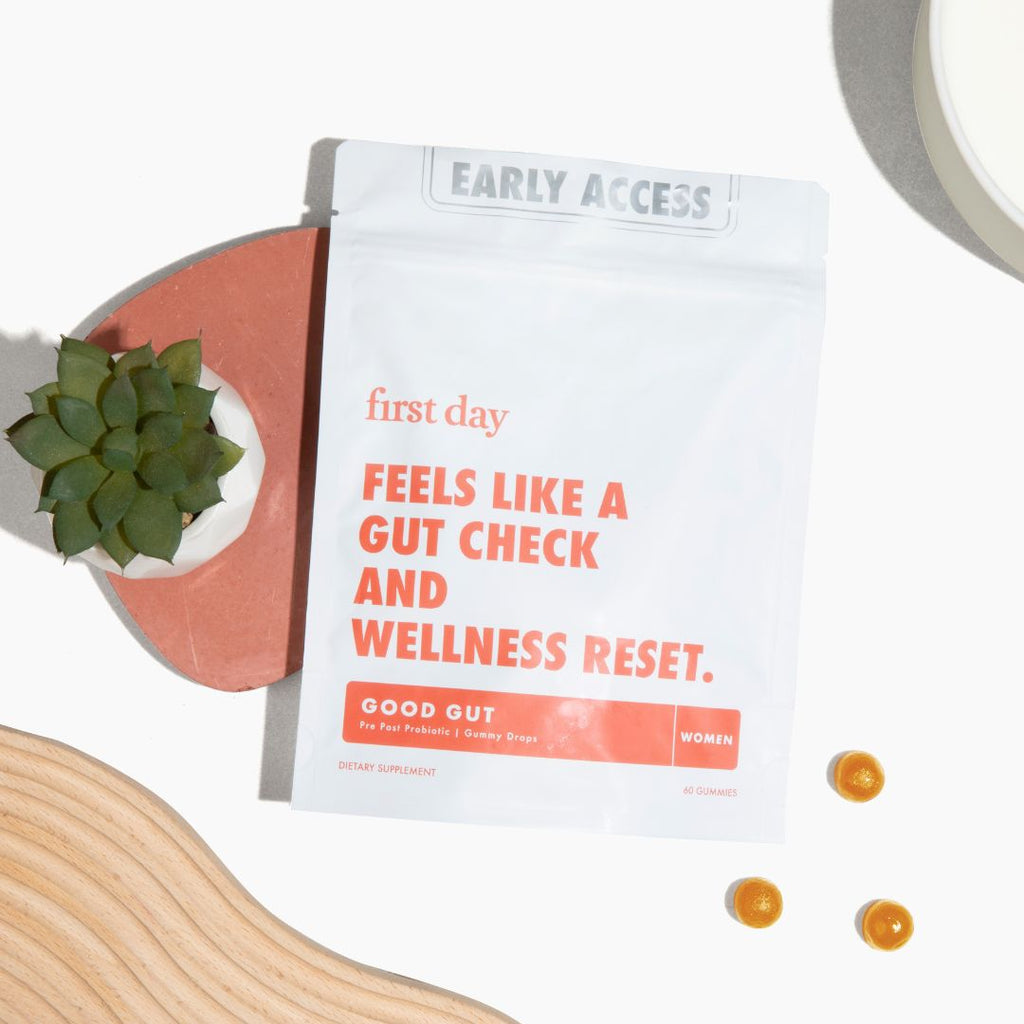
You might be surprised to find out that many of the foods you already eat are packed with some of these gut-loving tribiotics, like yogurt and sauerkraut. However, the kicker is the amount of tribiotics in everyday foods may not always hit the mark needed for those gut-boosting effects!
Foods Rich in Triumph
Believe it or not, your kitchen or local supermarket probably has a treasure trove of pre and probiotic-rich foods. For starters, fermented foods are basically a party for probiotics. Think Greek yogurt, kefir, kombucha, sauerkraut, and kimchi - these are not just tasty but are swarming with good bacteria.
On the prebiotic side, you'll want to lean towards foods like bananas, onions, garlic, leeks, and asparagus. These are high in the fibers that your gut residents love to munch on. And while postbiotics sound high-techy, they're essentially what you get after the probiotics have had their feast.
As for postbiotics, since that is the byproduct of probiotics, you actually can’t find it in natural food sources at all!
Supplementing the Good Stuff
Now, while loading up on the right foods is fantastic, not everyone's a fan of sauerkraut or has the time to prep gut-friendly meals every day. This is where a dietary supplement comes in handy.
You might be thinking, "Hey, I'll just run to the nearest supermarket or health store and grab my tribiotics!" After all, packing probiotics, prebiotics, and postbiotics into your diet offers incredible benefits like bolstering your digestive health and boosting your immune system. But here's the kicker - when you get there, you'll likely find a decent selection of probiotics and, if you're lucky, some prebiotics on the shelves. But all three together? That's like finding a needle in a haystack.
But guess what? First Day's got you covered.
We've carefully crafted the ideal tribiotic, especially for the whole squad - children, teens, moms, and dads. This isn't just about popping a gummy vitamin; it's about making it a fun and tasty part of your day. Imagine getting your daily dose of gut health in a delicious gummy. Plus, it's the convenience factor. Busy mornings? No problem. Late nights? You're still covered.
First Day's tribiotics contain a blend of prebiotics, probiotics, and postbiotics that work hand in hand to provide you with all the good stuff your family's gut needs.
Balancing Act: Diet + Supplements
Incorporating a well-balanced and healthy diet should always be your goal, but think of supplements as your nutritional safety net. They're there to fill in the gaps on the days when life gets too hectic or when you just can't face another bite of kale.
Here's a tip: start by slowly introducing more prebiotic and fermented foods into your meals. Maybe it's a banana with breakfast or some kimchi with your lunch. Then, make First Day's tribiotics gummies part of your routine. Keep them where you’ll see them, so you don’t forget.
Bottom line? Treat these food choices and supplements as stepping stones to a healthier gut and a happier you. And remember, while the path to good health certainly includes what you eat, it's also about enjoying the journey - yummy flavors included.
Final Thoughts: Tapping Into the Power of Tribiotics
And there you have it, a quick rundown on the mighty trio that's set to revolutionize your gut health — and maybe even your overall vibe. It's all about getting those good gut feelings, right? Whether it's through a plate full of fermented goodness or a quick gummy fix on the go, tribiotics could be the game-changer your body's been waiting for.
Curious to see how tribiotics can turn your gut health around? Discover how easy it is to start living your best gut health life with First Day!
Get Started With First Day’s Delicious Tribiotic Gummies Today!
References:
Tribiotic Topical: Uses, Side Effects, Interactions, Pictures, Warnings & Dosing - WebMD. (n.d.). Www.webmd.com. Retrieved April 13, 2024, from https://www.webmd.com/drugs/2/drug-61246/tribiotic-topical/details
Blaabjerg, S., Artzi, D., & Aabenhus, R. (2017). Probiotics for the Prevention of Antibiotic-Associated Diarrhea in Outpatients—A Systematic Review and Meta-Analysis. Antibiotics, 6(4), 21. https://doi.org/10.3390/antibiotics6040021
Hashemi, B., Abdollahi, M., Abbaspour-Aghdam, S., Hazrati, A., Malekpour, K., meshgi, S., Kafil, H. S., ghazi, F., Yousefi, M., Roshangar, L., & Ahmadi, M. (2023). The effect of probiotics on immune responses and their therapeutic application: A new treatment option for multiple sclerosis. Biomedicine & Pharmacotherapy, 159, 114195. https://doi.org/10.1016/j.biopha.2022.114195
Davani-Davari, D., Negahdaripour, M., Karimzadeh, I., Seifan, M., Mohkam, M., Masoumi, S., Berenjian, A., & Ghasemi, Y. (2019). Prebiotics: Definition, Types, Sources, Mechanisms, and Clinical Applications. Foods, 8(3), 92. https://www.ncbi.nlm.nih.gov/pmc/articles/PMC6463098/
Whisner, C. M., & Castillo, L. F. (2017). Prebiotics, Bone and Mineral Metabolism. Calcified Tissue International, 102(4), 443–479. https://doi.org/10.1007/s00223-017-0339-3
Ma, L., Tu, H., & Chen, T. (2023). Postbiotics in Human Health: A Narrative Review. Nutrients, 15(2), 291. https://doi.org/10.3390/nu15020291
Liu, Y., Wang, J., & Wu, C. (2022). Modulation of Gut Microbiota and Immune System by Probiotics, Pre-biotics, and Post-biotics. Frontiers in Nutrition, 8. https://doi.org/10.3389/fnut.2021.634897
Vance, A., Raut, S., Grier-Welch, A., Nima Alamdari, & Sharafi, M. (2022). A Novel Combination of Pre-, Pro-, and Postbiotics Demonstrates Protective Effects on Intestinal Permeability in an In Vitro Gut Barrier Model. Current Developments in Nutrition, 6, 1032–1032. https://doi.org/10.1093/cdn/nzac069.037
